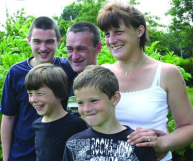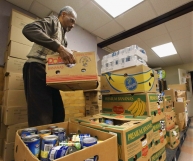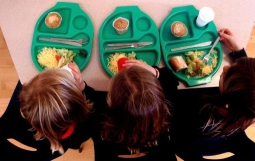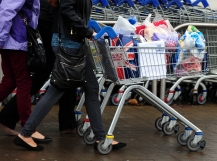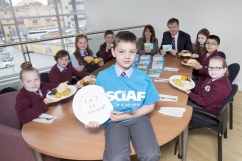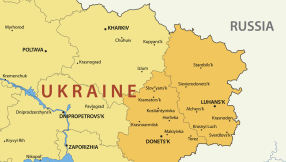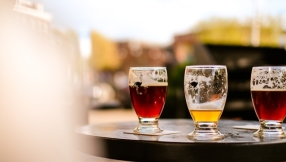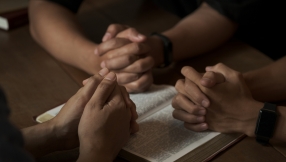
New research released today has shown that some of the UK's poorest families can no longer afford to heat water to wash themselves.
Debt charity Christians Against Poverty (CAP) has released statistics showing that of over 1,000 clients asked, 8 per cent percent had struggled to pay for hot water due to debt.
Furthermore, 50 per cent hadn't enough money to heat their home, 24 per cent couldn't always afford to cook hot meals and 16 per cent couldn't run a washing machine.
"Fuel poverty isn't just about keeping warm, vital as that is," Matt Barlow, chief executive of CAP, said of the survey results.
"It's about the grinding poverty that calls people to make impossible choices like do I make a hot meal or bath the kids. Will I run out of electricity if I use the washing machine?"
CAP client Jo was forced to survive on food parcels and feed her five children cold food because she couldn't afford to pay the bills.
"When we didn't have electric, we'd just eat sandwiches and rubbish," she recalled.
"One time my little boy ate cold beans. I used to eat cold beans but I never wanted my children to have to but he said 'Mum, I don't want sandwiches'. I didn't have electric so he had cold beans and two slices of bread."
Fuel poverty also left Jo without the means to wash her family's clothes or put the heating on in cold weather. "We were always robbing Peter to pay Paul. It knocks your confidence," she said.
"Same goes for the struggle to eat, it makes everyone miserable. Often, me and my partner have gone without so the children can eat. It does something mentally to you, it's really miserable."
Barlow has expressed concern for those most vulnerable ahead of the coming winter in particular. "As we head into the colder months, our concerns are for the people who can't afford to put the heating on and can't get a hot meal inside them either," he said.
"We don't yet know if it will be a hard winter but if it is, some people simply won't survive that kind of hardship."
CAP has also criticised the use of expensive pay-as-you-go energy metres, which often mean the poorest people are hit with bigger charges.
"We hear again and again about the poverty premium, but here is the evidence," Barlow added.
"The same people who were living with the indignity of not washing themselves and their clothes were actually paying more for their energy which is a terrible injustice."
300 policy makers, experts and practitioners are meeting today in Scarborough to discuss fuel poverty and a relevant response strategy to help those most in need.
Hosted by National Energy Action, which is working to eradicate fuel poverty, the conference will also feature a keynote address from Ed Davey, Secretary of State for Energy and Climate Change.
To find out more about CAP, click here.










